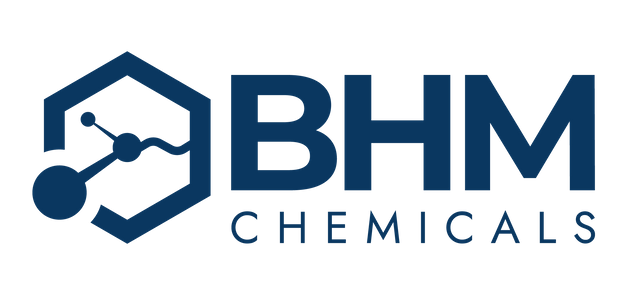L-Methylfolate
VITAMIN, SUPPLEMENT
L-Methylfolate, also known as levomefolic acid, LMF, L-5 Methyltetrahydrofolate is the primary biologically active form of folate used at the cellular level for DNA reproduction, regulation of homocysteine and the cysteine cycle. The un-methylated form, folic acid (vitamin B9), is a synthetic form of folate and is a popular supplement used especially during pregnancy. L-Methylfolate is a better and easier to absorb form of folate.
Main uses of L-Methylfolate include medicines and supplements: used during pregnancy, support for major depresive disorder, cardiovascular disease and cancer, Alzheimer's disease.
BHM Chemicals supplies 2 main compounds of L-Methylfolate such as: Calcium L-5-Methyltetrahydrofolate, Pharma & Food Supplement Grades Magnesium L-5-Methyltetrahydrofolate, Pharma Grade & Food Supplement Grades
Minimum order quantity: 5kg
Available Products
Methylfolate, a bioactive form of folate, plays a crucial role in various biochemical processes within the human body.
Properties
- Chemical Structure. Methylfolate, also known as 5-methyltetrahydrofolate (5-MTHF), is the active, naturally occurring form of folate in the body. Its chemical structure consists of a pteridine ring, para-aminobenzoic acid (PABA), and a glutamic acid residue. Unlike folic acid, the synthetic form of folate found in many supplements and fortified foods, methylfolate is directly usable by the body and does not require enzymatic conversion.
- Role in One-Carbon Metabolism. Methylfolate is an essential cofactor in one-carbon metabolism, a complex network of biochemical reactions involved in DNA synthesis, repair, and methylation processes. These processes are critical for cell division, the production of neurotransmitters, and the regulation of gene expression.
- High Bioavailability. Methylfolate has superior bioavailability compared to folic acid. It is readily absorbed in the small intestine, making it an effective and efficient source of folate for the body. This property is especially significant for individuals with conditions that may impair folate absorption or metabolism.
Uses
- Nutritional Supplement. Methylfolate is commonly used as a dietary supplement to address folate deficiency. Folate deficiency can result from inadequate dietary intake, malabsorption disorders, or certain medications that interfere with folate metabolism. Supplementing with methylfolate can help correct deficiencies and support overall health.
- Pregnancy and Fetal Development. Folate, including methylfolate, is crucial for preventing neural tube defects (NTDs) in developing fetuses. Adequate folate intake during pregnancy is essential for proper fetal brain and spinal cord development. As such, healthcare providers often recommend methylfolate supplements for pregnant women or women planning to conceive.
- Methylation Support. Methylfolate is a key player in methylation processes, which involve the transfer of a methyl group (CH3) to various molecules, including DNA and neurotransmitters. Proper methylation is essential for regulating gene expression, maintaining mental health, and detoxifying the body. Some individuals with certain genetic variations may benefit from methylfolate supplementation to support optimal methylation.
- Mental Health. Research shows that Methylfolate supplementation supports treatments for depression and Alzheimer's disease.
- Cardiovascular Health. Research suggests that methylfolate may have potential benefits for cardiovascular health. It plays a role in reducing homocysteine levels—a compound associated with an increased risk of heart disease and stroke. Lowering homocysteine levels through methylfolate supplementation may contribute to improved cardiovascular outcomes.
Benefits
- Improved Bioavailability. The high bioavailability of methylfolate compared to folic acid makes it a preferred choice for addressing folate deficiency. This increased bioavailability ensures that the body can readily access and utilize the folate it needs for essential functions.
- Folate Deficiency Prevention. Supplementing with methylfolate is an effective way to prevent and correct folate deficiencies, reducing the risk of associated health problems, such as anemia and neural tube defects.
- Enhanced Methylation Support. Methylfolate supplementation can help individuals with methylation-related issues achieve optimal methylation, potentially improving mental health and overall well-being.
- Cardiovascular Health. Research has indicated that lowering homocysteine levels through methylfolate supplementation may contribute to better cardiovascular health outcomes. This is particularly relevant for individuals at risk of heart disease and stroke.
Safety Considerations
Methylfolate is generally considered safe when used as directed, but there are some important safety considerations to keep in mind:
- Drug Interactions. Methylfolate may interact with certain medications, including anticonvulsants, methotrexate, and some antibiotics. Individuals taking these medications should consult with their healthcare providers before starting methylfolate supplements to avoid potential interactions.
- Individualized Dosage. The appropriate dosage of methylfolate can vary from person to person, depending on factors such as age, health status, and genetic variations. It is crucial to work with a healthcare provider to determine the most suitable dosage for your specific needs.
- Allergic Reactions. While rare, allergic reactions to methylfolate supplements can occur. If you experience symptoms of an allergic reaction, such as rash, itching, swelling, or difficulty breathing, seek immediate medical attention.
- Individualized Guidance. Individuals with certain medical conditions, such as epilepsy or bipolar disorder, may require specialized guidance when using methylfolate supplements. Always consult with a healthcare provider to ensure that methylfolate is safe and appropriate for your specific circumstances.
Methylfolate, the active form of folate in the body, is a vital nutrient that plays a central role in various essential biochemical processes. Its high bioavailability, ability to correct folate deficiencies, and potential benefits for cardiovascular health and methylation support make it a valuable dietary supplement.
However, it is essential to approach methylfolate supplementation with caution and under the guidance of a healthcare provider, especially if you are taking medications or have specific health concerns. An individualized approach to supplementation ensures safety and efficacy.
As research in nutritional science continues, methylfolate's role in promoting health and well-being is likely to become even more apparent, underscoring the importance of staying informed about the latest developments in nutrition and dietary supplementation.
Please note that the information provided in this article is for informational purposes only and should not be considered a substitute for professional medical advice. Always consult with a healthcare provider before starting any dietary supplement regimen or making significant changes to your nutritional intake.
References:
- Obeid R, et al. (2013). The role of methylation and genetics in cardiovascular disease. Molecular Nutrition & Food Research
- Greenberg JA, et al. (2011). Folic acid supplementation and pregnancy: more than just neural tube defect prevention. Reviews in Obstetrics and Gynecology
- Baggott JE, et al. (2002). Absorption of folates from 5-methyltetrahydrofolate vs. folic acid in healthy adults. The Journal of Nutrition
- U.S. National Library of Medicine. (2021). 5-Methyltetrahydrofolic acid. PubChem
Calcium L-5-Methyltetrahydrofolate, Pharma Grade
CAS no.
Molecular Weight
Formula
Certification
Standard
Compliance
Regulatory documents
Racemic Purity
151533-22-1
497.5 g/mol
C20H23CaN7O6
WHO GMP, WC, USFDA, ISO 9001:2015
USP
ICH, EU GMP, US cGMP
DMF
Minimum 99%
Magnesium L-5-Methyltetrahydrofolate, Pharma Grade
CAS no.
Molecular Weight
Formula
Certification
Standard
Compliance
Regulatory documents
Racemic Purity
1429498-11-2
482.75 g/mol
C20H23MgN7O6
-
USP
ICH, EU GMP, US cGMP
DMF
Minimum 99%
Calcium L-5-Methyltetrahydrofolate, Food & Supplement Grade
CAS no.
Molecular Weight
Formula
Certification
Standard
Compliance
Regulatory documents
Racemic Purity
151533-22-1
497.5 g/mol
C20H23CaN7O6
-
USP
Food GMP
N/A
Minimum 99%
Magnesium L-5-Methyltetrahydrofolate, Food & Supplement Grade
CAS no.
Molecular Weight
Formula
Certification
Standard
Compliance
Regulatory documents
Racemic Purity
1429498-11-2
482.75 g/mol
C20H23MgN7O6
-
USP
Food GMP
N/A
Minimum 99%





